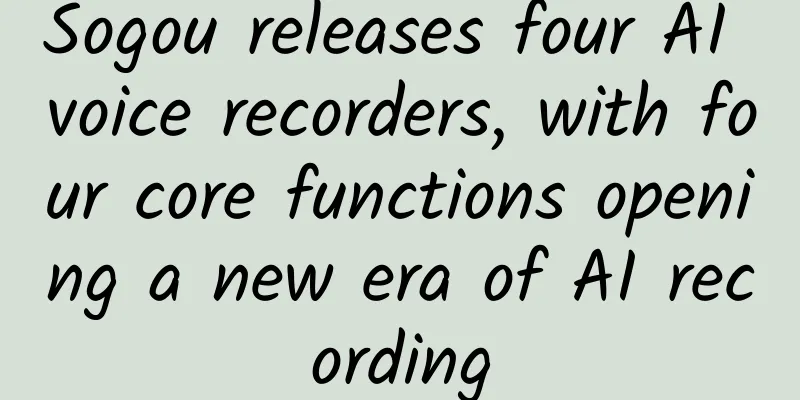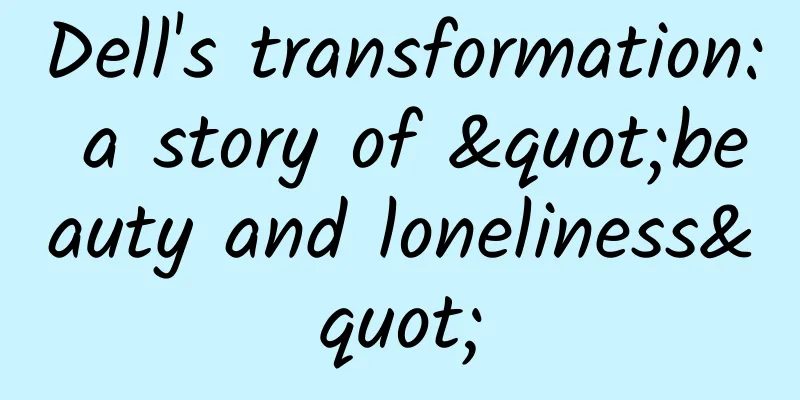Lee Sedol lost to AlphaGo in the first round. Is the artificial intelligence threat theory true?

|
"Lee Sedol resigns!" In the first game between Google's artificial intelligence system AlphaGo and world Go champion Lee Sedol, Lee Sedol announced his defeat after three and a half hours of competition. With the end of the first round of competition, the topic of artificial intelligence has once again been pushed to the forefront by the media. In addition to Google, technology companies such as Microsoft, Apple, IBM, Facebook, and Baidu have also invested heavily in establishing artificial intelligence research and development teams to specialize in deep learning technology. In fact, since the birth of the first computer, humans have dreamed of making computers intelligent or even surpassing human intelligence. In this struggle between the left and the right, humans have always been curious and fearful about artificial intelligence. More and more scientists have begun to warn against artificial intelligence projects. Is it true that creating humanoid robots is really a disaster? A game for all mankind The match between Google AlphaGo and Lee Sedol has essentially transcended national boundaries and has become a competition between all humans and robots. "The significance of this competition itself is much greater than the prize money, because I am representing humans in the battle against computers," Lee Sedol said before the game. Although artificial intelligence technology started very early, in the following half century of development, the failure of several attempts at technological innovation caused artificial intelligence research to stagnate, projects were closed, funding was withdrawn, and the entire industry entered a cold winter in the second half of the 20th century. It did not begin to recover until 1997, when IBM's "Deep Blue" defeated chess master Kasparov, once again making people start to pay attention to artificial intelligence projects. In the past 20 years, there have been four man-machine battles that left a deep impression on people. The Deep Blue supercomputer defeated Kasparov, the world's number one chess master at the time; in 2006, in the "Inspur Cup" first Chinese chess man-machine battle, five Chinese chess grandmasters were eventually defeated by the supercomputer Inspur Tissot; in 2011, IBM's Watson challenged two human champions in the old American quiz show "Jeopardy!" and won the championship easily; in January this year, Google's AlphaGo artificial intelligence program defeated European Go champion Fan Hui 5-0 in October last year. This was the first time that an artificial intelligence program defeated a human Go player without giving up a single piece. Judging from previous records, today's artificial intelligence can surpass most human players at least in chess. According to the research and development team, the key to Google AlphaGo is the use of deep neural networks in artificial intelligence, which is something that robots did not have before. There are two different neural networks in Alpha Go. The first is called the policy network, which is used to predict the next step; the second is called the value network, which is used to predict what different distributions on the chessboard will bring about different results. The research team believes that as long as Alpha Go is trained enough, it can beat all human players. Why do scientists prefer to test the waters of artificial intelligence on the Go project? According to Tencent founder Ma Huateng, "If we use the exhaustive method to count, Go is the most difficult game among all chess games, even if we count all the atoms in the universe, because its power is extremely high, and it must rely on reasoning to have a chance to defeat the human brain." In other words, the Go project is more challenging in terms of algorithms and robot learning, which can fully prove that artificial intelligence has a "high IQ", breaks through the "fixed" program logic of traditional computers, and integrates the ability of self-learning or deep learning. So, will robots that are only good at calculating in the game of Go one day have the same thinking ability as humans, and stage the scene in the movie "Terminator" where robots rule the earth? The danger exists, but there is no need to worry too much Currently, scientists' concerns about artificial intelligence are mainly focused on controllability and replacing human labor. Among them, when robots have the ability to learn, recognize and even have emotions, whether humans can still control them is a question that everyone is more concerned about. From the overall development situation, the problem of robots having intelligence but lacking wisdom has not been solved. Even if computers can beat the human brain in Go, answering IQ questions, and mechanical operations, it is only a milestone in the development of a certain type of artificial intelligence, not an all-round robot. They can only accept training and cannot create new things, so the current artificial intelligence is just a tool. Some humanoid robots that we can see on the market now have only added a set of speech recognition programs, which convert the frequency and timbre of the sound into numbers, convert them into a series of feature values through algorithms, look up the dictionary to find the corresponding text and then display it. The most typical application is Apple's Siri system. In many cases, it does not understand human speech and just goes through the process again. Many of the answers are more like the cuteness of programmers when setting up the program. "Ultimately, we want to apply these technologies to important real-world problems. Because the methods we use are universal, we hope that one day they can extend further and help solve the most pressing social problems, from medical diagnosis to environmental models, or provide more reference opinions for humans." Alpha Go developer Hassabis explained. Artificial intelligence technology continues to advance, and the system is increasingly accepting tasks that only humans could complete before. However, this does not mean that machines and humans have the same form of intelligence, but only that in some functions, machines have done things similar to or even beyond what humans can do, just like the analogy of airplanes and birds. Judging from the current situation, artificial intelligence technology is equivalent to automating many tasks that originally required manpower, and is limited to replacing human labor. Liu Cixin, author of the science fiction novel The Three-Body Problem, believes that "in science fiction, artificial intelligence generally appears in opposition to humans. This does not mean that all science fiction authors are pessimistic, but they want to create enough contradictions and conflicts. I think I am no exception. I think those warnings about the development of artificial intelligence are somewhat alarmist. Judging from the current development situation, artificial intelligence is still far from threatening human survival." Perhaps we can end with a joke, starting from the "timing protection conjecture". If the "Terminator" incident really happens one day in the future, people from the future will definitely come to stop current humans from developing artificial intelligence, but aren't technology giants like Google still alive and well? As a winner of Toutiao's Qingyun Plan and Baijiahao's Bai+ Plan, the 2019 Baidu Digital Author of the Year, the Baijiahao's Most Popular Author in the Technology Field, the 2019 Sogou Technology and Culture Author, and the 2021 Baijiahao Quarterly Influential Creator, he has won many awards, including the 2013 Sohu Best Industry Media Person, the 2015 China New Media Entrepreneurship Competition Beijing Third Place, the 2015 Guangmang Experience Award, the 2015 China New Media Entrepreneurship Competition Finals Third Place, and the 2018 Baidu Dynamic Annual Powerful Celebrity. |
<<: Your smart life is not only reflected in large-screen devices
Recommend
Everywhere! Android phones can now be flashed with Windows 10
When it comes to flashing Windows system to mobil...
How to do competitive product analysis? 4 elements + 6 core methodologies to teach you how to quickly master the essence of competitive product analysis
When we get involved in competitive product analy...
The tent is made of 100 tiger skins, the only one of its kind in the world
In the Ganzi Tibetan Autonomous Prefecture Museum...
Ruofeng's "Leader's Golden Game Short Training Camp" Master a leader's tactics in 21 days
Ruofeng's "Leader's Golden Game Shor...
Online Event Promotion Implementation Manual
What is event operation? My understanding of even...
“Deregistering your mobile number is equivalent to betraying yourself”? @Everyone, you must do these things before changing your mobile number!
These two days Topic: "Canceling your phone ...
Information flow and QQ advertising lead conversion solution!
The competition for traffic is fierce, and last m...
When doing marketing on TikTok, what are the benefits of certifying a Blue V account?
Douyin Blue V is actually the official logo of Do...
Sanda Ge and Li Jiaqi, 5 characteristics of selling goods on live streaming platforms!
Sanda Ge and Li Jiaqi are the anchors of Kuaishou...
How does the Lanzhou Financial Mini Program work? How to promote financial WeChat mini-programs?
With the development of mobile Internet, finance ...
Microsoft's business is increasingly moving towards hardware
Foreign media published an analysis article on Tu...
8 Classic Models for Event Planning
The May Day holiday is over and everyone has to r...
Baidu bidding actual consumption is 20% higher than the budget. What is the purpose of this?
When I went to do the statistics today, I found t...
A rough and fast Android full-screen adaptation solution
1. Current situation Due to the serious fragmenta...









